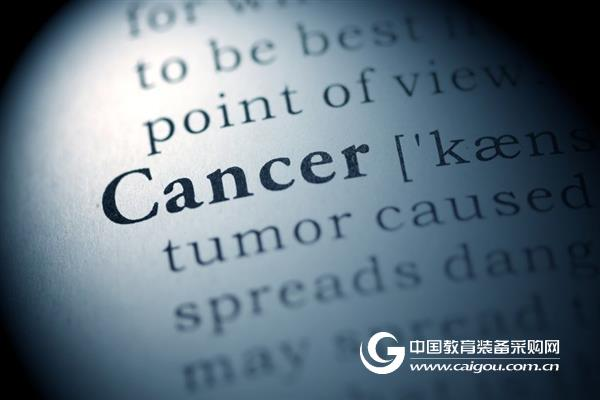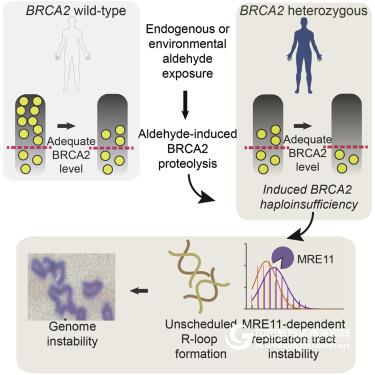Guide
A recent study published in the journal Cell, scientists from the University of Cambridge have confirmed that a ubiquitous chemical can increase cancer risk. These chemicals are found in automobile exhaust, tobacco, building materials, furniture, cosmetics and shampoos.

A study published in Cell magazine entitled "A Class of Environmental and Endogenous Toxins Induces BRCA2 Haploinsufficiency and Genome Instability" confirms that a ubiquitous chemical can increase cancer risk. These chemicals are found in automotive exhaust, tobacco, building materials, furniture, cosmetics and shampoos and have the ability to disrupt DNA repair mechanisms.
Aldehydes (aldehydes) are a small amount of chemicals found in our bodies, but are almost everywhere in our environment. Previous observations suggest that exposure to these chemicals is related to cancer, but the reasons behind this association remain unclear.
The new study, led by Professor Ashok Venkitaraman of the University of Cambridge, uses genetically engineered human cells and cells from patients with a false copy of the breast cancer gene BRCA2 to identify mechanisms by which aldehydes promote cancer.
DNA damage often occurs when cells divide in our body. However, our body comes with a defense mechanism to help repair such damage. In this study, scientists found that exposure to aldehydes disrupts this defense mechanism even in normal healthy cells; those who carry the wrong copy of the BRCA2 gene are particularly sensitive to this "destruction" of aldehydes.

Specifically, aldehydes trigger the degradation of BRCA2 protein in cells. In people who have inherited a false copy of the BRCA2 gene, this results in lower levels of intracellular BRCA2 protein than is required to complete adequate DNA repair, damaging the normal mechanisms of preventing mutations and potentially promoting cancer formation.
Each person is born with two copies of most of the genes. However, approximately one in every 100 people may carry a wrong BRCA2 gene. This puts them at risk for breast, ovarian, prostate and pancreatic cancer. Exposure to aldehydes may increase their chances of developing these cancers.
A common potential source of Aldehydes is alcohol. The body converts the alcohol we drink into acetaldehyde. Normally, acetaldehyde is decomposed by a natural enzyme called "acetaldehyde dehydrogenase." However, more than 500 million people, mainly from countries such as Japan, China and South Korea, have inherited a defective gene (ALDH2) that inactivates this enzyme. This may mean that these people are particularly sensitive to the cancer-promoting effects of aldehydes.
Professor Venkitaraman said: "An important revelation of this study is that it may be that 'aldehyde exposure' triggers cancer susceptibility in people carrying a false copy of the BRCA2 gene. This may help us prevent or treat it in the future. Cancer in this population."
Shanghai Chuangsai Technology has excellent performance, interleukin cytokines, fetal bovine serum, electrophoresis equipment scientific instruments, raw material drug standards, chemical reagents, cell culture consumables, Shanghai Chuangsai, mass products special promotions, welcome to inquire!
Salad Bowl,Paper Bowl,Double Pe Coated Paper Bowl,Kraft Paper Bowl
JIANGYIN BIOPACKAGE CO.,LTD , https://www.chinapulppackage.com